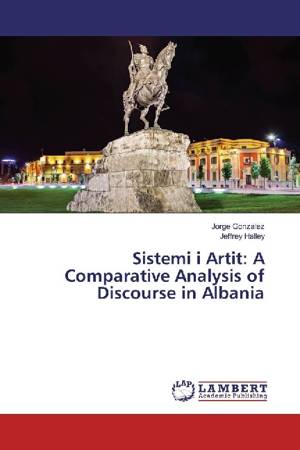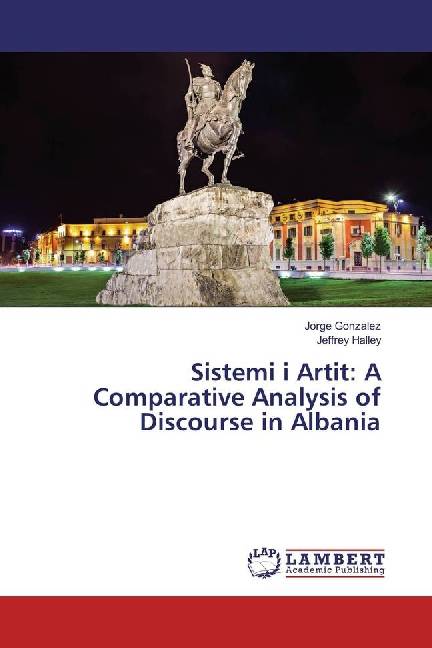
- Afhalen na 1 uur in een winkel met voorraad
- Gratis thuislevering in België vanaf € 30
- Ruim aanbod met 7 miljoen producten
- Afhalen na 1 uur in een winkel met voorraad
- Gratis thuislevering in België vanaf € 30
- Ruim aanbod met 7 miljoen producten
Zoeken
Sistemi i Artit: A Comparative Analysis of Discourse in Albania
Jorge González, Jeffrey Halley
Paperback | Engels
€ 35,45
+ 70 punten
Omschrijving
This book identifies the ways newspapers in post-socialist Albania have differed from the institutional discourse sanctioned by the communist government from 1945 to 1992 with regards to writing about and classifying the visual arts. As Albania has transitioned from an isolationist, tyrannical dictatorship to a neo-liberal capitalist society, this research posits that due to the changing political climate, the written descriptions of art change as well. This project will employ a Barthesian comparative semiotic analysis of institutional documents produced during the communist regime of Enver Hoxha with the institutionally consecrated newspaper of post-socialist Albania, Panorama. By utilizing Roland Barthes' iconic La Système de la Mode as a theoretical backbone, this research will explore how institutional discourse has reacted to the change in political-economy in Albania. Furthermore, this research will provide a unique insight into the changing modes of production and how discourse has portrayed such changes since the fall of communism in Albania.
Specificaties
Betrokkenen
- Auteur(s):
- Uitgeverij:
Inhoud
- Aantal bladzijden:
- 72
- Taal:
- Engels
Eigenschappen
- Productcode (EAN):
- 9783330009103
- Uitvoering:
- Paperback
- Afmetingen:
- 150 mm x 220 mm

Alleen bij Standaard Boekhandel
+ 70 punten op je klantenkaart van Standaard Boekhandel
Beoordelingen
We publiceren alleen reviews die voldoen aan de voorwaarden voor reviews. Bekijk onze voorwaarden voor reviews.











